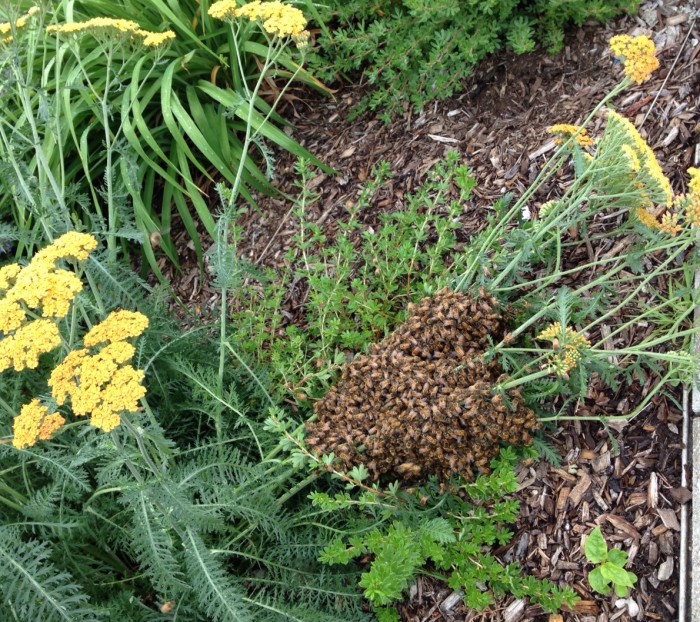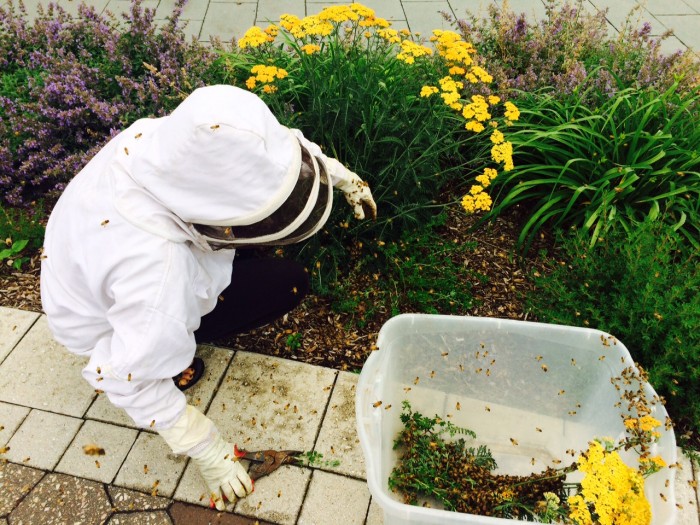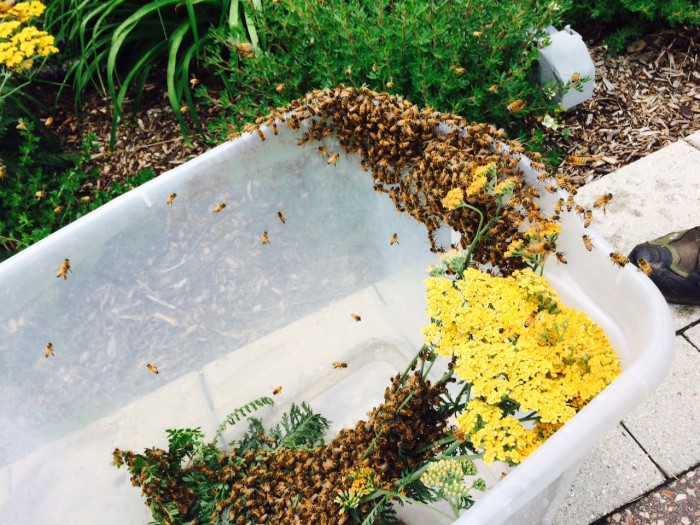In early June, ICT, Inc. had a naturally-occuring Swarm Street with a swarm of honeybees making its way along the east end of Mass Ave. on the Indianapolis Cultural Trail (all things big and small love the Trail’s flower beds). We called in beekeeper Kate Franzman, owner of Bee Public, to safely remove and re-home these perky pollinators. She so graciously shared her knowledge with us in a guest blog.

Bee Public is a project I started a couple years ago. I keep beehives in very public spaces around town and give talks and classes about the importance of bees, why they’re in trouble, and what anybody can do to make a difference.
Honeybees (as well as native bees and other pollinators) are in big trouble due to problems like Colony Collapse Disorder, habitat loss, pesticide use, and many other issues with modern-day industrial agricultural and beekeeping practices. Bee loss affects you and me and everyone we know. Bees are vital to maintaining our sustainable food supply— one in every three bites of food we eat was made possible by a bee. Urban beekeeping may hold the key to reintroducing healthy, happy honeybees to our environment.

Education and awareness about bees and other pollinators are Bee Public’s main goals, and part of that is education about swarms. A healthy hive will swarm every spring, it’s their way of procreating. The hive raises a new queen and the old queen swarms off with about half the bees in the hive to find a new home. Now there are two colonies where there once was one.

I try to let people know that a swarm, though a big ball of bees can look pretty intimidating, is nothing to be afraid of. Swarming bees are house hunting and are pretty calm in that state, without the presence of babies and honey. For beekeepers, finding a swarm of bees is a real boon and is always exciting.
On the Friday before Pride and all the other happenings, I got a whole bunch of tweets, calls, and emails about a swarm at the corner of Mass Ave and College. One even reported there were “millions and millions of bees” on the Cultural Trail. (There were probably more like a few thousand!) I was happy to come down and scoop them up to place them in a new home on a Growing Places Indy urban farm site nearby.

If you see a swarm of bees, call a beekeeper, not an exterminator! Other ways you can help the declining population of bees are by supporting local, sustainable agriculture that doesn’t use chemicals and pesticides, and by planting lots and lots of flowers to provide food for bees.
Follow Kate’s and Bee Publics’ adventures on Facebook.
A huge thanks to Kate for her swift action in moving the bees to a safe location!
